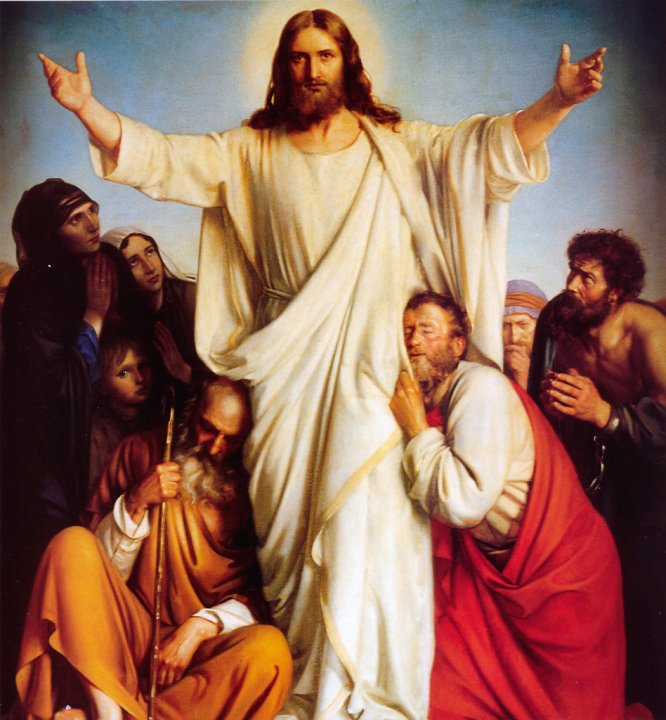The Nativity of our Lord Jesus Christ: Feast of Christmas,
Mass at Dawn
1st Reading: Isaiah 62:11-12: Look your Saviour comes.
2nd Reading: Titus 3: 4-7: It was for no reason except
his own compassion that He saved us.
Gospel: Luke 2: 15-20: The Shepherd found Mary, Joseph and the baby.
The
Messiah had been foretold since the world began in Genesis. The prophecy given
by Jacob back in the Genesis was now being fulfilled. The birth of Jesus is in
the very beginning of Genesis itself to save the humankind from sin and death
which shows God’s faithful love, mercy and forgiveness to the humankind in the
world.
1. God invites Jerusalem to rejoice:
In
the first reading of Isaiah, God invites Jerusalem to rejoice with an
extraordinary joy. It is obvious that when Scripture speaks of Jerusalem as a
Daughter of Zion or a woman or to a mother refers not so much to the city
itself but to the people living in it, nay to the whole people of Israel.
Yahweh invites Jerusalem to rejoice for two reasons:
i.
First,
because her Saviour was about to come to free the people of Israel in exile who
had been for years in exiles. So that Yahweh would purify their sins and they
would be called “the redeemed ones”, “the people made holy.”
ii.
The
second reason for rejoicing would be the extraordinary love that Yahweh would
henceforth bestow on Jerusalem. Now on Jerusalem would be called “the one her
husband for”, the beloved of Yahweh and they would no longer be called “the
abandoned one”, “the one cast away.” This is the language Scripture often uses
to express God’s deep love for the people of Israel.
What
has all this to do with the Feast of Christmas we are celebrating?
It
has much to do. God was announcing the two folds event in Isaiah. Firstly, His
coming to free his people from exile and take them back home and secondly, His
coming in the person of the Messiah, become man to free humankind from the
slavery of sin and death and take us all home with Him.
In
fact, we are now the “the new people of new Israel”, and the Church, our
Mother, “the new Jerusalem.” This is the reason why God invites us to rejoice
at Christmas and at all time rejoice whole heartedly , now we are “the redeemed
ones” at the birth of Jesus at Bethlehem (Beth=house, Lehem=bread)=house of
bread). Jesus truly becomes our food or bread or life and gives us the
salvation, the eternal life to all of us. So we are the privileged people to
rejoice always.
2. Paul explains the great change that
the coming of Jesus brought to us all:
In
the second reading, Paul writes to his disciple Titus who had been appointed to
the lead the Church of an island called Crete. He explains God’s love,
forgiveness and freedom for humankind although we are unworthy or sinners. So
the church invites the Christians today to rejoice, since at Christmas Jesus
repeats his coming in our lives at all times.
3. Why did Jesus become a man? Do we
deserve his coming into this world?
Paul
would give the answer to these questions in his letter to Titus. There was
nothing in human beings that make him/her deserve being saved by God. Only
God’s unconditional love and kindness brought Jesus to save us.
Looking
at the Babe Jesus in the manger, with the eyes of faith, we should discover God’s
goodness reflected in him. Paul tells us that Jesus is “God’s perfect copy”
(Heb 1: 3). Jesus is “the living image of his Father.” He revealed his Father’s
love for humankind in his own unique love for us which he showed his love
through his death on the cross.
4. How to respond to God’s love today?
Is there any way to respond to it?
In today’s Gospel, the shepherds
and Mary show us the way to respond God’s love:
a. The shepherds: The second reading
could tell us that the shepherds were not deserved people to receive the first
good news of Jesus’ birth who were known as the despites and thieves in the
society. Jesus stared his work of salvation with them precisely because they
were the ones who needed him most. The shepherds discovered God’s and responded
immediately in a wonderful way:
i.
They
believed what the angel said and hurried up to see Jesus.
ii.
They
praised God for His love for them, the Redeemer is born.
iii.
They
made known to others what had been revealed to them.
b. Mary: Like says of her: “Mary
treasured all these things and pondered them in her heart.” She kept a precious
treasure what she leant about her Son: she did not give up the Word of God when
the Angel announced. She pondered over it time and again, always trying to
discover the depth of God’s love shown to her to save the world by Jesus.
On this feast of Christmas, both
the shepherds and Mary invite us to discover the precious gifts our Saviour has
brought for us. Let us try to discover and experience God’s love, mercy and
forgiveness in our lives and believe in the power of Jesus and praise Him
always for his salvation and proclaim the Good News of Jesus to all the people
in the world as the shepherds did.
Thought: How many missed the first coming of Jesus Christ? How
many will miss the second coming of Jesus Christ?
Wishing you
all “A Happy Christmas!”
May the
true PEACE & JOY of the new born Jesus Christ be with you always!
